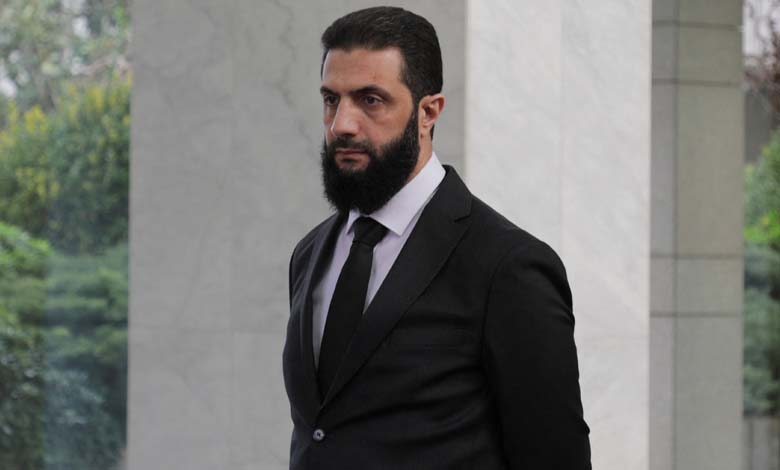Ahmed Al-Sharaa Woos Trump: Peace with Israel in Exchange for Lifting the Siege

In a surprising move that may reshuffle the cards in the Middle East, an unofficial visit by a prominent member of the U.S. Congress to Damascus has revealed direct contact between Syria’s new leadership and former U.S. President Donald Trump’s administration.
-
Formation of a New Armed Group to Confront Ahmed Al-Sharaa – Details
-
Al-Sharaa Responds to Criticism of His Government: Satisfying Everyone Is an Impossible Task
The visit, led by Foreign Affairs Committee Chair Cory Mills, was not diplomatic in the traditional sense but carried significant political implications. During his week-long stay in Damascus, Mills delivered a personal message from Syrian President Ahmed Al-Sharaa to Trump. According to informed sources, the message offered a potential review of U.S. policy toward Syria — particularly the crippling economic sanctions — in exchange for exploring possible paths to peace between Damascus and Tel Aviv. Amid growing complexities in the Syrian scene and rising regional tensions, this initiative appears to be a bold attempt by Syria’s leadership to reposition itself and reach out to the West, capitalizing on potential shifts in the American political mood.
-
Will Al-Sharaa Renew His Relationship with the Muslim Brotherhood or Exclude Them from the Political Scene?
-
Al-Sharaa Pledges to Form an Inclusive Government in His First Speech to Syrians
Diplomatic Opening
In a noteworthy shift in regional policy, informal talks have taken place recently between the Syrian leadership and a U.S. congressional envoy, raising questions about a potential diplomatic thaw between Damascus and Washington after years of severed ties and sanctions.
This step revealed that high-level political messages are being exchanged despite the absence of official relations.
Cory Mills, Chair of the Foreign Affairs Committee in Congress, announced that he visited the Syrian capital and met with President Ahmed Al-Sharaa, who assumed power following the escape of Bashar Al-Assad amid an internal settlement that ended decades of autocratic rule.
-
Has al-Joulani become moderate or is he simply acting with pragmatism and caution? A political science professor responds
-
Will Al-Sharaa Renew His Relationship with the Muslim Brotherhood or Exclude Them from the Political Scene?
In the 90-minute meeting, both parties discussed the possibility of easing or lifting U.S. economic sanctions and explored potential paths for a peaceful settlement with Israel.
Though the visit was not part of the official diplomatic agenda, its importance transcended its unofficial nature. It was facilitated by influential Syrian-American figures who acted as intermediaries to reopen unofficial communication channels between the two nations.
Mills, describing his visit as a “fact-finding mission,” stated he would brief Trump and National Security Advisor Mike Waltz on the meeting and its outcomes.
-
After 13 Years… Syria Regains Its Seat at the Organization of Islamic Cooperation
-
The Emir of the Turkestan Islamic Party Leads Fighters in Syria from Kabul… What’s the Story?
Rethinking Sanctions
The Republican representative clarified that the discussions explicitly addressed the current administration’s expectations regarding any Syrian steps that could prompt a reassessment of sanctions, especially in areas such as counterterrorism, border control, and involvement in a comprehensive political settlement.
He added that “the message from Al-Sharaa was realistic and clear,” without disclosing its full content.
-
The U.S. Administration and Syria: Caution and Skepticism Towards the New Regime Led by Ahmad Al-Sharaa
-
Security Chaos Returns to Syrian Regions… Hayat Tahrir al-Cham Members Top the List of Accused
Under President Ahmed Al-Sharaa, Syria aims to turn the page on the international isolation imposed during Bashar Al-Assad’s era. The new leadership is seeking to open diplomatic channels with Washington and its allies in hopes of revitalizing Syria’s economy, which has been devastated since the war erupted in 2011.
The Trump administration, in its current second term, has taken limited steps to reassess sanctions, allowing expanded humanitarian exemptions in the food, medicine, and alternative energy sectors. However, sovereign sanctions remain in place, pending what Trump calls “serious tests of good faith” from the Syrian side.
-
Kurdish Initiative to Secure Northern Syria’s Borders with U.S. and French Forces
-
US Maintains Sanctions on Syria Despite Ongoing Policy Debates
Exiting International Isolation
According to leaks from sources close to the U.S. delegation, the Syrian message included specific proposals: a gradual lifting of sanctions in return for commitments in areas such as counterterrorism, prisoner releases, and engagement in U.S.-brokered peace talks with Israel — all long-standing points of contention between Damascus and the West.
The current Syrian government is working to exit the international isolation entrenched during Assad’s rule and aims to reclaim its regional role, especially amid improving ties with some Arab states.
-
US Plans to Adjust Humanitarian Aid Policies for Syria Without Lifting Sanctions, Sources Reveal
-
Europe and Syria After al-Assad: “A New Political Beginning”
The domestic economic collapse is also pushing the new leadership to seek urgent economic relief, fully aware that U.S. sanctions are the biggest barrier to any national recovery plan.
Washington slightly eased some sanctions in January for humanitarian reasons, but the White House has yet to signal a readiness for a major policy shift toward Syria.
Ahmed Al-Sharaa’s message to Trump now stands as a preliminary test of the new regime’s intentions — and a rare opportunity to determine whether Damascus is truly ready for change or merely seeking to break its isolation without making real concessions.












